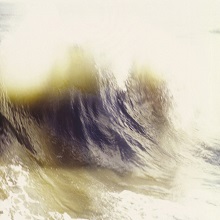
The Raincoats are a British experimental post-punk band. Ana da Silva and Gina Birch formed the group in 1977 while they were students at Hornsey College of Art in London.

Antônio Carlos Brasileiro de Almeida Jobim, also known as Tom Jobim, was a Brazilian composer, pianist, guitarist, songwriter, arranger and singer. Considered one of the great exponents of Brazilian music, Jobim internationalized bossa nova and, with the help of important American artists, merged it with jazz in the 1960s to create a new sound with popular success. As such he is sometimes known as the "father of bossa nova".

Getz/Gilberto is an album by American saxophonist Stan Getz and Brazilian guitarist João Gilberto, featuring pianist and composer Antônio Carlos Jobim, who also composed many of the tracks. It was released in March 1964 by Verve Records. The album features the vocals of Astrud Gilberto on two tracks, "Garota de Ipanema" and "Corcovado". The artwork was done by artist Olga Albizu. Getz/Gilberto is a jazz and bossa nova album and includes tracks such as "Desafinado", "Corcovado", and "Garota de Ipanema". The last received a Grammy Award for Record of the Year and started Astrud Gilberto's career. "Doralice" and "Para Machucar Meu Coração" strengthened Gilberto's and Jobim's respect for the tradition of pre-bossa nova samba.
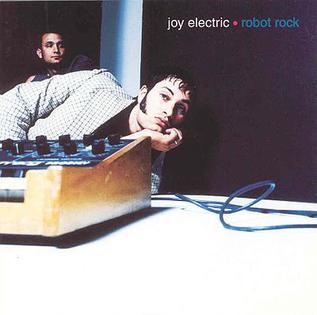
Robot Rock is the third full-length album by Joy Electric, released in 1997. It is the group's best-selling album.

The ABCs of Anarchism is an EP by American electronic group Negativland and British rock band Chumbawamba. A three-track collection, it incorporates samples of songs from Chumbawamba's Tubthumper (1997) as well as music by the then-current artists including Ice Cube and the Spice Girls, and television shows such as M*A*S*H and Teletubbies. The release's lyrics focus on political theory and children's media.
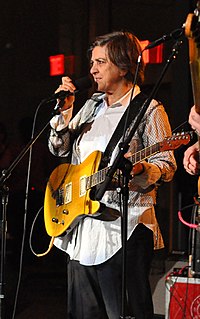
Ana da Silva is a musician, best known as a founding member of post-punk rock band the Raincoats.
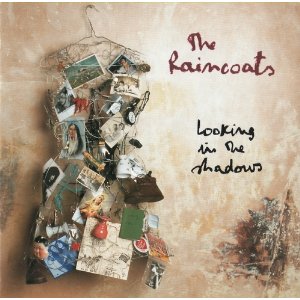
Looking in the Shadows is the fourth studio album by British alternative rock group the Raincoats, released in 1996 on 17 June by Rough Trade and on 3 June by DGC. It was the band's first album in 12 years.

Elis & Tom is a bossa nova album, released in 1974, recorded by Brazilian singer Elis Regina and singer-songwriter Antônio Carlos Jobim.
Love, Strings and Jobim is a 1966 album by various Brazilian artists who play new Brazilian songs by various composers. Because Antônio Carlos Jobim is pictured on the cover and mentioned in the title, he has been and continues to be credited to be the performing artist on the album. Jobim does not appear on the album except as a composer. The original Brazilian title of this album is "Tom Jobim Apresenta" and it appeared on the Elenco label.

Wave is the fifth studio album by Brazilian jazz musician Antônio Carlos Jobim, released in 1967 on A&M Records. Recorded in the US with mostly American musicians, it peaked at number 114 on the Billboard 200 chart, as well as number 5 on the Jazz Albums chart.

Canção do Amor Demais is 1958 album by Elizete Cardoso. It is often considered the first bossa nova album, and contains the first recordings of João Gilberto's guitar beat, which would go on to become a staple of bossa nova. Gilberto played guitar on "Chega de Saudade" and "Outra Vez".

João Donato de Oliveira Neto is a Brazilian jazz and bossa nova pianist from Brazil. He first worked with Altamiro Carrilho and went on to perform with Antonio Carlos Jobim and Astrud Gilberto.
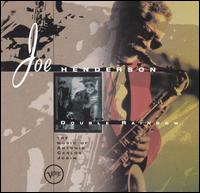
Double Rainbow: The Music of Antonio Carlos Jobim is a 1995 album by jazz saxophonist Joe Henderson, released on Verve Records. It contains Henderson's rearrangement of music by Brazilian composer Antonio Carlos Jobim.
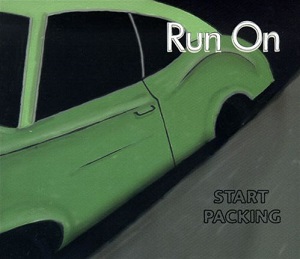
Start Packing is the debut album by Run On, released in 1996 through Matador Records.
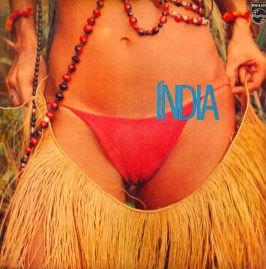
Índia is the fourth studio album by Brazilian singer Gal Costa, released on 1973 by Philips Records. Its major hits were "Índia", "Volta" and "Desafinado".
"Sabiá" is a Brazilian song composed in 1968 by Antônio Carlos Jobim, with lyrics by Chico Buarque. English-language lyrics were written later by Norman Gimbel.

Inédito was a privately commissioned studio album by Antônio Carlos Jobim, released in 1987 in a limited edition to commemorate his 60th birthday, and re-released in 1995 for the general public. It was released in the United States in 2006 as The Unknown, by DRG Records.
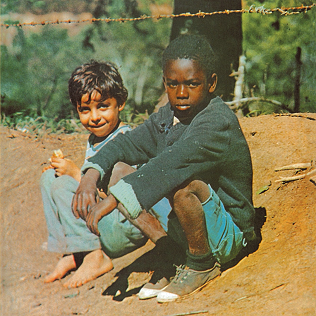
Clube da Esquina is a 1972 double album by the Brazilian music artists collective Clube da Esquina, credited to Milton Nascimento and Lô Borges. Considered an important record in the history of Brazilian music, it features arrangements by Eumir Deodato and Wagner Tiso, and conductions by Paulo Moura. The album garnered attention for its engaged compositions and miscellany of sounds.
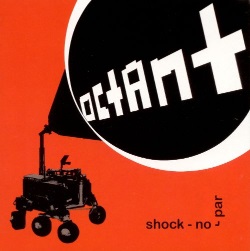
Shock-No-Par is the debut studio album by American musical group Octant, a project led by Seattle-based musician Matt Steinke. Recorded at the group's own studios, the album was then released by Up Records in August 1999. Shock-No-Par exemplifies the group's unusual lineup and set-up, with much of the music being played with Steinke's homemade inventions and the distinctive Octant robot—also created by Steinke—which provides the album's percussion and was credited as a band member, alongside Steinke, who added vocals and keyboards, and Tassany Zimmerman, who added backing vocals and operated the Macintosh used to control the homemade creations.
